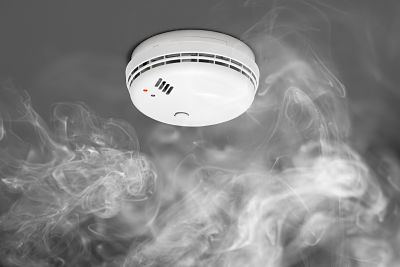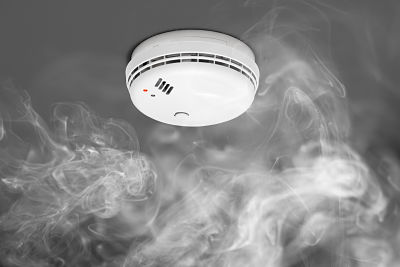by JJ Sessions
I am a big believer in the saying, “If you’re prepared, you will not fear.” So, as the old boy scout motto suggests, I always do my best to “be prepared.” I am consistently looking for ways to be ready for a variety of emergency situations.
 A couple of weeks ago, I woke up at 3:47 am. I had just had a terrible nightmare about a house fire. Still groggy, I tried to review the steps I might need to take should such a catastrophe actually happen.
A couple of weeks ago, I woke up at 3:47 am. I had just had a terrible nightmare about a house fire. Still groggy, I tried to review the steps I might need to take should such a catastrophe actually happen.
My first priority is my family, of course. Because I have a brother-in-law who is a fire fighter, I am always sure to keep my smoke and carbon monoxide detectors in tip-top shape. I regularly change the batteries and test them too.
We have talked as a family about what to do if there was a fire. We have agreed on who is in charge of whom and where we should meet outside of the house. We have even practiced an emergency drill a couple of times just to make sure we understood our roles, so I had that covered.
My next question was “What would happen if my house was a compete loss and burned to the ground?” My first stop was Google, of course. There was certainly plenty of interesting information, but I decided I wanted to figure out how my current insurance coverage would affect me.
My first call, when I had a break in my day, was to my personal insurance agent. Luckily, his office is in the same building, so I popped over to see if he could answer some questions. I explained my dream about the house catching fire, asked if we could go over what would happen in a situation like that, and what he would recommend in terms of my policy’s coverage. He carefully walked through my coverage with me so I became a little more confident that my coverage was adequate.
In case you’re wondering, yes, I told my insurer multiple times that our discussion was also a topic for a blog post. Still, I will admit I’m a bit paranoid now that something is going to happen to my house. Should my house catch fire, adjusters are going to take a second look because of the number of questions I asked and the amount of detail I was going through. I told you I was paranoid.
Next, out of curiosity, I reached out to two people I knew whose houses had caught fire to learn more about their experiences. While the cause of each fire was unique, the one interesting fact I had not considered was that the bulk of the damage to their houses occurred because of the water used to put out the fire rather than the fire itself.
In one case, the fire damage would have taken only $5,000 to fix had they been able to put out the fire without water. However, the result was that the water and fire damage combined required 80% of the house to be taken down to the wood studs and starting all over again. Both of the homeowners mentioned the difficulty of identifying all of the items that needed to be replaced.
Another nugget of wisdom I picked up from them involves the issue of clutter. I didn’t really think about the many possessions we all have, and how many of us have no system of documenting (not to mention remembering) what we own. Now that I realize how much clutter we have, we have taken steps to simplify our lives ever since.
Here are a few simple steps you can take to ensure you’ll be prepared should misfortune strike at your house:
1) Check in with your insurance agent and find out more about your homeowner’s policy.
2) Ask specifically about your belongings’ replacement value vs actual value options.
3) Test your smoke detectors monthly, and make sure you have carbon monoxide detectors.
4) Devise an emergency plan and practice it with your family to ensure it is workable and effective.
5) Pick an annual date and time to take a video of all of the “STUFF” you own. You can use your cell phone to make a video of each room of your house and then store the file in multiple places.
Our family participates in a semi-annual church conference, which is our signal to update our video. You could pick New Year’s, Labor Day or any other day, of course. Simply set a recurring phone reminder to schedule your video update annually.
At the end of the day, material things are just stuff, but memories and memorabilia make our lives more meaningful. By preparing in advance for unexpected adversity, we help protect the people we love and the possessions we treasure. If you do not currently have an emergency plan in place, maybe today would be a good day to begin creating one.
This article has recently been republished on Forbes.com. You can reread this article here.
 JJ Sessions, CFP® is a Partner and Senior Financial Planner in the Twin Cities office of The Planning Center, a fee-only financial planning and wealth management firm.
JJ Sessions, CFP® is a Partner and Senior Financial Planner in the Twin Cities office of The Planning Center, a fee-only financial planning and wealth management firm.
Please email him at: jj@theplanningcenter.com.






